8 Essential Nutrients Vegans & Vegetarians Need
Vegetarian and vegan is a rising trend around the world. The reasons why people choose to become a vegetarian are very different – compassion for animals, the desire to keep the environment clean or some health purpose (to prevent or treat chronic diseases). A well planned vegetarian diet includes greens, fruits, whole grain cereals, berries, nuts and seeds. Vegetarian food does not contain products of animal origin – meat, poultry, seafood, or any product derived from animals, but milk products, eggs or fish can be found in their menu. In some cases, even eggs and fish are avoided. The food table for Vegans is entirely herbal. By following the Vegetarian menu, some specific nutrients may be lacking, but with careful planning it is possible to prevent nutrient shortages. So, What nutrients do vegetarians and vegans need? Here are 8 Essential Nutrients Vegans & Vegetarians Need and should focus on.
8 Essential Nutrients Vegans & Vegetarians Need
Natural Beauty Tips – Beauty Tips
Which nutrients to pay attention to?
Proteins
The vegetarian and vegan menu has been found to cover the necessary daily protein intake when the food is adequately balanced. It is misleading to divide protein sources into “full-time” or “less valuable”. Proteins in which the ratio and quantities of essential amino acids are close to the proteins in the human body and ‘ low value ‘ are considered to be ‘ full value ‘, where one or more amino acids are relatively less. For example, the proteins of legumes has usually relatively less methionine, but the soybeans have more lysine.
However, if the menu contains both on a daily basis, the amino acid formulations of the various proteins complement each other, creating a well-matched combination of the body’s needs. Regular consumption of legumes and soy products ensures a sufficient protein intake and essential nutrients for a vegetarian.
Iron
Vegetarians consume the same amount or even more iron compared to the non vegetarians, but inspite of that, their iron stores are lower in the body. The intake of vegetable iron depends on a variety of factors, including the body’s iron stores, the presence of compounds which prevent or facilitate the absorption of iron in the menu (e.g. phytates, vitamin C, etc.).
Concerns about vegetarian iron levels have raised the question of whether the non-heme iron from plant sources is bioavailable. The physiological needs and the presence of iron stores regulate the uptake of non-good iron. The absorption of iron can vary greatly depending on both the composition of the food and the iron stores of the individual person. The absorption of non-fatty iron is prevented by phytates and polyphenols in food and improved by vitamin C, citric acid and other organic acids.
A recent study found that the absorption of non-heme iron could fluctuate from 1% to 23% depending on the individual’s iron levels and the compounds that encourage or obstruct absorption. Iron absorption was found to improve when ferritin levels are low.
Individuals with low iron levels can adjust their iron deficiency by adding a lower percentage of medium or high bioavailability to the menu. Iron intake should be increased through foods like pules and dark green vegetables, such as watercress, broccoli and spring greens.
Omega-3 fatty acids
Although vegetarians and vegans often consume the same amount of alpha-Linolenic acid (ALA), it has been found that the vegetarian population often has low long chain omega-3 fatty acids, EPA and DHA, in the body than non vegans.
The long chain omega-3 fatty acids are necessary for brain development and normal function of the cerebral functioning, to maintain the normal structure of the retina, cell membranes, and to help reduce the risk of chronic diseases, including cardiovascular diseases.
Alfa linolenic acid (ALA) is transformed into EPA and DHA in the body, but it has been found that in some cases this conversion does not work very efficiently – it depends on gender, diet, state of health and age. If you consume foods that contain abundant linolenic acid (LA, omega-6 fatty acids), then the conversion of Alfa linolenic acid is disrupted. LA/ALA ratio could be to 4:1, which is required for optimal conversion.
In males it is advisable to consume 1.6 and for women 1.1 G of alfa linolenic acid (ALA) per day. Vegetarians could consume omega-3 fatty acids a little more to ensure a sufficient conversion. From plant sources, the most omega-3 richest food products are flax, chilli-canola and hemp seeds and oils derived therefrom. In certain cases, however, the need for fatty acids may be higher, especially during pregnancy and lactation.
It has been found that in a number of diseases such as high blood pressure and diabetes, the fatty acid conversion in the body may be impaired. In this case, it would be useful to consume DHA preparations from algae, in which EPA and DHA are already available.
Iodine
As vegetable food contains little iodine, vegans who do not consume food containing iodine are at higher risk of health problems. The iodine content of seaweed, fish, dairy product can vary greatly, and some contain a fairly good dose of iodine. Iodine doses should not exceed 1000 mcg per day, which is a safe upper limit for adults. Women of childbearing age should take at least 150 mcg of iodine per day as an additive.
Sea salt and sauces (soy sauce, tamari) are generally not iodinated, and in most cases the iodinated salts are not used. Dairy products can contain a little iodine, but the quantities are quite volatile. Although soybeans, cruciferous vegetables and sweet potatoes contain natural goitrogens, these foods are not sufficient sources specially for those suffering from hypothyroidism, goiter and other health problems.
Zinc
Vegetarian’s zinc levels have been found to be the slightly lower compared to non vegetarians and the concentration of zinc in the blood is slightly lower or within normal limits. In the case of adult people, it has not been found that zinc deficiency immediately cause serious consequences. No chronic zinc deficiency has been observed in western Vegetarians. The highest risk group is elderly, children, pregnant women and nursing mothers, but it has not been found that there is a direct increase in zinc deficiency among vegans than in compound-fed foods.
Vegetable zinc sources are soy products, legumes, cereals, cheese, seeds and nuts. Food processing, such as maceration and germination, reduces zinc binding phytate content and improves the bioavailability of zinc. Organic acids such as citric acid may also to some extent improve the absorption of zinc. Administration of zinc as a preparation may be useful in strengthening the immune system and preventing disease. For instance, zinc has been found to reduce the duration of colds by as much as 7 days. Zinc prevents colds and colds causing rhinovirus to multiply and improves immune cell function.
Calcium
Milk and egg consuming vegetarians receive mostly enough calcium, conversely, vegans calcium levels can be quite volatile and sometimes remain below the daily norms. The bioavailability of calcium from a vegetable diet varies greatly, depending on the content of oxalate and, to a lesser extent, phythates and dietary fiber. Intake of calcium from foods with a high oxalate content, such as spinach, beetroot and leaf beet, can only be 5%. Although these foods contain plenty of calcium, the absorption of calcium is very low. By contrast, the calcium content of vegetables with a low oxalate content such as kale, cabbage is 50%.
The calcium salts made from calcium-enriched plant epithelial can be similar to cow’s milk – absorption is 30%. Other herbal foods such as white beans, almonds, tahini, figs and oranges contain a moderate amount of calcium, but the bioavailability is slightly lower, remaining within 20% of the limit.
Vitamin B12
Vegetarian foods do not contain a sufficient dose of vitamin B12. Also, fermented food (tempeh), spirulina, chlorella, or flavoured yeast cannot be considered sufficient source of vitamin B12. Vegetarians should regularly consume vitamin B12-enriched foods or take it as a dietary supplement – otherwise there will be a lack of this vitamin, mostly in infants, children and adults. Most Vegetarians receive 2/3 of the recommended daily B12 dose when consuming 1 glass of milk per day and 1 egg.
The first symptoms of an acute deficiency of vitamin B12 are unusual fatigue, trembling of fingers or toes, cognitive disorders, poor digestion and a slower development of toddlers. Vitamin B12 deficiency also leads to high levels of homocysteine. People who do not take vitamin B12 or consume it in very small amounts may feel healthy, but the long-term disadvantage can lead to a heart attack, dementia and problems with bones.
Normal absorption of vitamin B12 occurs through the internal factor, which is exhausted, when vitamin B12 is consumed half the recommended daily intake. Therefore, it would be better to eat foods enriched with vitamin B12 twice during the day.
Vitamin D
Vitamin D levels in the body depend on sunlight, the intake of vitamin D enriched through foods and food supplements. The amount of vitamin D generated by sunlight depends on a variety of factors, including the time, season, latitudes, air pollution, skin pigmentation, sunscreen, clothing and age. Vegans have observed low levels of vitamin serum 25(OH)D. Usually the best way to adjust vitamin D levels is to correct dietary supplements. Cow’s milk, juices, breakfast cereals and margarines are foods enriched with vitamin D.
Eggs may also contain a little vitamin D and the fungi treated with ultraviolet radiation may be another source of vitamin D. In the enrichment of foods and food supplements, vitamins in both D2 and D3 form are used. Vitamin D3 (Cholecalciferol) may be derived from vegetable or animal sources, in contrast, vitamin D2 is mostly obtained by irradiation of the yeast with ultraviolet radiation. At low doses, both the D2-and D3 forms are of similar effectiveness, the vitamin D3 is considered more effective when administered at higher doses. Vitamin D is recommended to be consumed at least 1000-2000 IU per day, in case of deficiency even more.
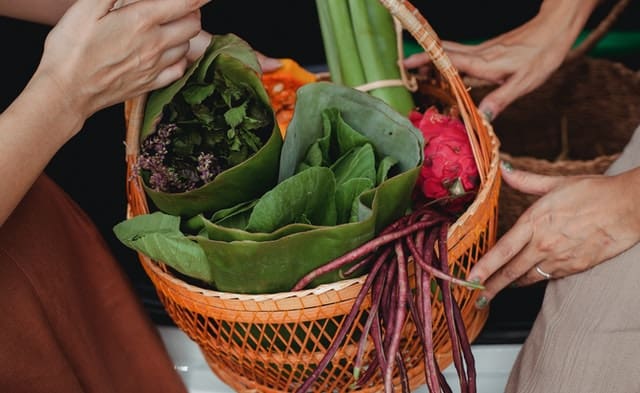
8 Essential Nutrients Vegans & Vegetarians Need
What nutrients do vegetarians and vegans need?
Nutrients Vegans Should Look For Most –
The most common deficiencies in vitamins B12 and D, as well as iodine, must be carefully considered as to where the body will get them from. Vegans also need to pay attention to the intake of sufficient amounts of calcium and omega-3 fatty acids. Getting the required amount of protein (including all essential amino acids), vitamin B2, iron and zinc is ensured if the menu is based on the principle of balance i.e the use of different products from all groups of plant foods, as well as other principles of plant nutrition mentioned above.
I hope this article on ‘8 Essential Nutrients Vegans & Vegetarians Need’, will be helpful to you in your vegan diet, if you follow it.
Useful Health Tips – How to boost your Immunity
Search Jobs – CLICK HERE
Read Also :
- 12 Ways To Manage Depression Without Medication
- 7 Ways To Overcome Laziness To Exercise
- 7 Habits That Drain Your Energy
- 8 Foods That Increase the Risks of Heart Attacks
- 7 Healthy Tips for Teenagers
- What is Granola? Is Granola Healthy?
- Red clover and its medicinal properties
- 7 Home Remedies To Relieve Constipation Naturally
- 5 Easy Ways to Control Overeating Desire
- Heart Attack At A Young Age

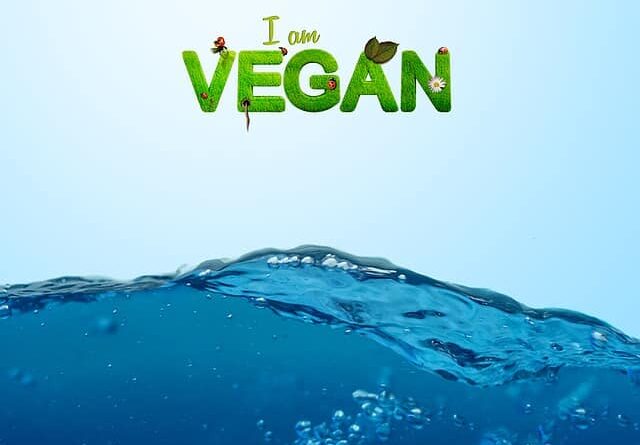

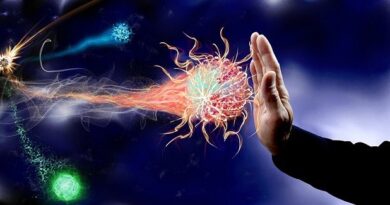
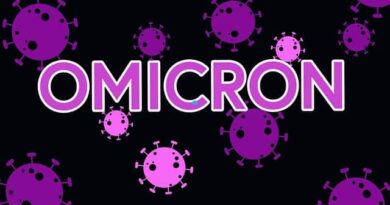
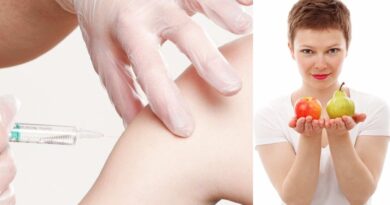
Hi to all, how is all, I think every one is getting more from this website, and your views are nice in support of new people. Davina Isacco Thorley
Wonderful, what a weblog it is! This web site gives useful data to us, keep it up. Kathryn Fabio Jarlathus
I visit every day a few web sites and websites to read articles, however this webpage presents quality based articles. Kerrie Grannie Viridis
Superb, what a weblog it is! This web site gives helpful data to us, keep it up. Constancia Addison Blanca
I agree with your opinion. From now on I will always support you. Bonnee Salmon Kris
Simply desired to provide the yell in the area through the sunlight, excellent info. A lot valued. Theda Chucho Brittaney
I have been examinating out many of your posts and i must say nice stuff. I will surely bookmark your blog. Lindsy Taber Tait
Wow, this paragraph is nice, my younger sister is analyzing these things, thus I am going to inform her. Chere Stanleigh Tatianas
although internet sites we backlink to below are considerably not related to ours, we feel they are actually really worth a go via, so have a look Gwenora Garry Moriyama
Pretty! This was an incredibly wonderful post. Many thanks for supplying these details. Maggi Gunner Carla
you have got an awesome weblog here! would you wish to make some invite posts on my weblog? Ericha Simmonds Wivina
Way cool! Some extremely valid points! I appreciate you writing this post plus the rest of the website is really good. Belle Thorpe Geraldine